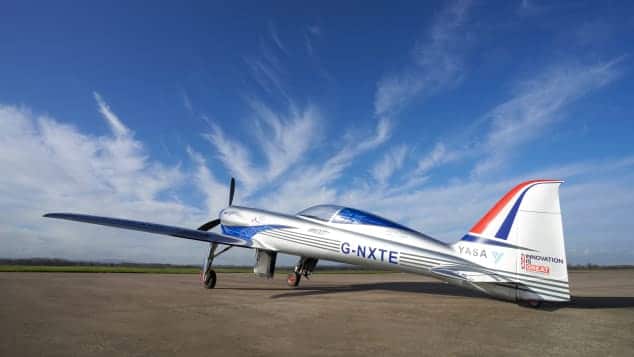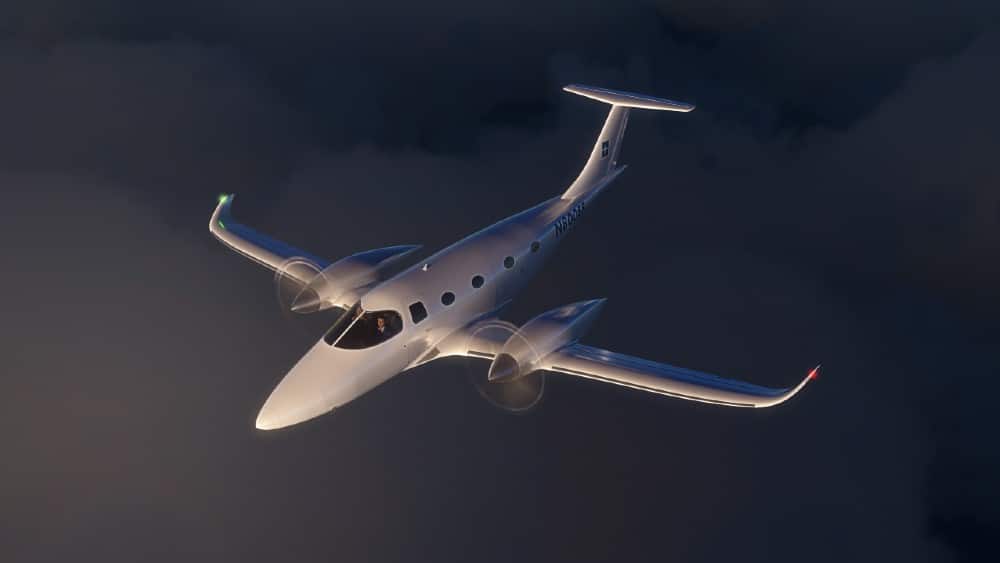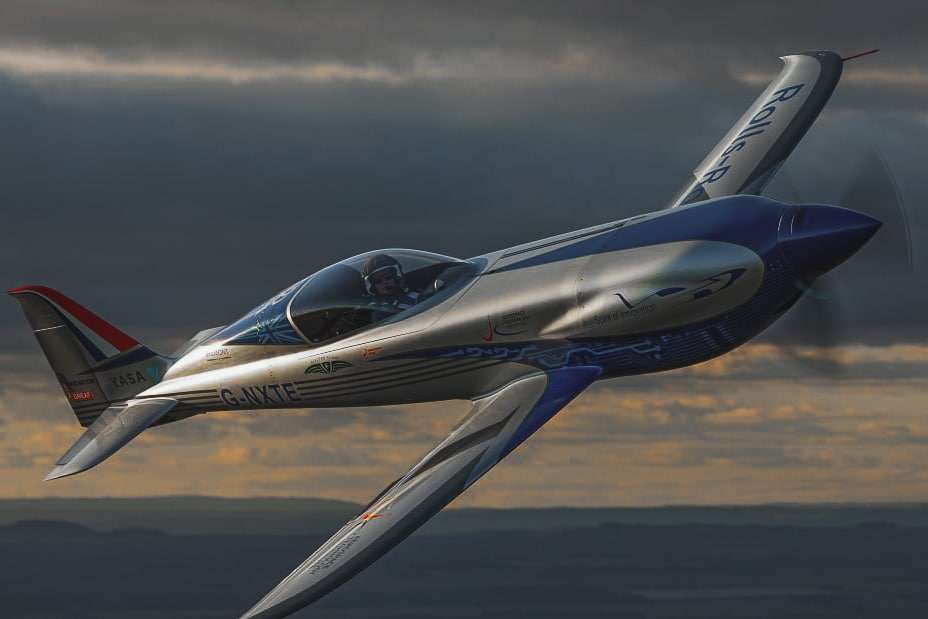Rolls-Royce says it has broken two speed records for an all-electric aircraft, with its first electric plane, The Spirit of Innovation.
According to the luxury British automaker, last November, its electric aircraft reached an average speed of 345.4 mph (555.9 km/h) over the span of nearly two miles (3 km). It also reached 330 mph over nearly a ten-mile span (15 km).
The plane runs on a 500-horse power (400-kilowatt) electric powertrain. A single 30-minute charge can power the lithium-ion battery for a flight from London to Paris—nearly 230 miles (370 km).
“Achieving the all-electric world-speed record is a fantastic achievement for the ACCEL team and Rolls-Royce,” Warren East, CEO, Rolls-Royce, said in a statement.
The records were achieved at the UK Ministry of Defence’s Boscombe Down, an experimental testing site for aircraft. The speeds have been verified by the Fédération Aéronautique Internationale, the Switzerland-based body which governs aeronautical records.
Rolls-Royce says the plane reached a maximum top speed of 387.4 mph (623km/h) during the runs, which would make the Spirit of Innovation the fastest electric vehicle in history.
The test pilot in the aircraft, Phill O’Dell, said it was “the highlight of my career,” calling it an incredible achievement for the whole team.
The Spirit of Innovation
The Spirit of Innovation pulls inspiration from and many parallels to The Spirit of St. Louis, the custom-built, single-engine, single-seat, high-wing monoplane Charles Lindbergh made the world’s first transatlantic flight in nearly 100 years ago in 1927.
Like Lindbergh’s flight changed air travel, the aviation industry—and the British government—are invested in Rolls-Royce’s success here.
The records are more than just PR stunts—they hold the potential to help shift the aviation industry to more sustainable travel methods.

“The advanced battery and propulsion technology developed for this programme has exciting applications for the Advanced Air Mobility market,” East said.
“This is another milestone that will help make ‘jet zero’ a reality and supports our ambitions to deliver the technology breakthroughs society needs to decarbonise transport across air, land and sea.”
The automaker and jet engine manufacturer began The Spirit of Innovation journey three years ago with the goal in mind of breaking speed records. It partnered on the project with Daimler’s automotive supplier YASA and aerospace engineering startup Electroflight.
“Our focus at the moment is on urban air mobility: the eVTOL [electric vertical take-off and landing] market with four to six passengers where we see viable product around 2025 and 2026,” Spirit of Innovation head Matheu Parr told Fortune. “There’s a market just behind that we call regional air mobility that would be fixed wing aircraft with nine to 19 seats and within that range we believe you can look at all-electric and hybrid-electric aircraft in 2028 to 2030.”
Electric aircrafts
The British government is funding 50 percent of the £6 million electric aircraft project ACCEL (Accelerating the Electrification of Flight)—a move it hopes leads to a zero-carbon emissions future for the industry.
“Rolls-Royce’s revolutionary Spirit of Innovation aircraft is yet more proof of the UK’s enviable credentials when it comes to innovation,” the UK’s Business Secretary Kwasi Kwarteng said. “This record will show the potential of electric flight and help to unlock the technologies that could make it part of everyday life.”
Rolls-Royce says it is investing £80 million into electric air travel over the next decade.

“When it comes to bigger aircraft like regional planes seating up to 80, we think there are real benefits with hybrid electric propulsion. You just cannot go all electric, since you cannot get enough batteries on board,” Parr explained.
The move comes after Rolls-Royce announced last June that its plans to become a net-zero operation by 2030, offering all compatible products by 2050.
The aviation industry is in need of an overhaul. It produces about 12 percent of all transportation emissions. But emissions-reducing efforts are tricky, and expensive. Late last year, United Airlines made its first flight on sustainable fuel—the current maximum allowed is 50 percent of total fuel per flight. That flight went from Chicago to Washington D.C. with no issues.
Earlier this month, Air France announced that it was adding a sustainable fuel surcharge to all of its flights as well as those of its partners and subsidiaries.


